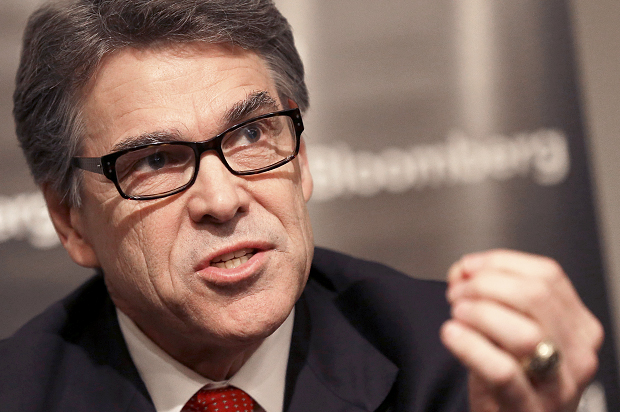Everyone bring a second pair of pants to the 2016 election, because Rick Perry’s running again!
As Simon Maloy writes, there are no expectations for Perry this time — aside from his own, which may not be to win the presidency, but at least to save face better than the last time, when he had all sorts of money and hype and then ended up humiliating himself and tarnishing his political legacy. He finished near the bottom, behind candidates like Newt Gingrich, Rick Santorum and Ron Paul. But this year neither Newt Gingrich nor Ron Paul is running, so who knows!
Perry’s main pitch appears to be the same as his 2011 one: running on the “Texas Miracle,” the flourishing of Texas’ economy that roughly overlapped with his 14 years as governor. (The flip side to which is the Texas Tragedy, in which the state abandoned any responsibility to educate or take care of its poor.) The “Texas Miracle” may be under duress right now, as the state has been losing jobs due to the collapse in oil prices — which tells you something about what undergirds much of Texas’ success in the first place. Still, Rick Perry will get back out there, just as he did in the 2012 cycle, bragging about how Texas’ economy became the pride of the nation by restricting torts and not having any regulations at all. (Except, of course, in the mortgage sector, which kept it away from much of the damage of the Great Recession.)
This pitch didn’t work in 2011. Perry chalked it up to to his temporary imperfection as a messenger: He was recovering from back surgery and was on all sorts of painkillers, which does sort of explain a lot. Will the Texas Miracle pitch work if the candidate himself isn’t high the whole time? That, in a sentence, is the big question that the 2016 Rick Perry Experiment seeks to resolve, and we’re just as curious as he is to see the results.
Perry will also attempt this time to demonstrate a vague understanding of foreign policy, something he didn’t bother with at all in 2012. He’s tried to give off that impression over the last year the cheap way: taking a trip to Europe, putting on glasses, talking about books, etc. So far what all this “boning up” on foreign policy seems to have brought him, though, is a list of vacant talking points that coincidentally appeal directly to the right wing of the Republican Party.
In his announcement speech yesterday he joined several other candidates in pledging to pull out of any would-be accord restraining the nuclear ambitions of Iran — and he said that it would be his “very first act as president.” A good follow-up to that would be how he’d manage his second act as president: somehow trying to repair alliances with the other major world powers while Iran responds by continuing with its nuclear weapons program at a pace of its choosing.
One of the oddest parts about Perry’s speech concerned the Iraq War. He, like many of the other Republican candidates, declared the war “won” when President Obama pulled out troops, after which the war became un-won. “How callous it seems now as cities once secured with American blood are now being taken by America’s enemies, all because of a campaign slogan,” he said. He then, surprisingly, volunteered a comparison to the Vietnam War:
I saw during Vietnam a war where politicians didn’t keep faith with the sacrifices and courage of America’s fighting men and women, where men were ordered into combat without the full support of their civilian commanders.
To see it happen again, 40 years later, because of political gamesmanship and dishonesty, is a national disgrace.
Here’s where a politician’s desire to highlight his own connection to the military while trashing the current president’s military strategy somehow leads to a comparison of the Iraq War to the Vietnam War, and a pseudo-defense of the Vietnam War as winnable if only politicians had had the backbone to let soldiers finish the job. I’m sure that other Republican candidates are perfectly capable of their own Vietnam revisionism — hey-o, Lindsey Graham! — but Rick Perry is, as far as I can tell, the first one to include that in his announcement speech.
Aside from the lack of drugs, Rick Perry 2016 looks much like 2012. It’s all red meat that doesn’t hold up well under basic follow-up questioning. That’s true of a lot of the candidates, but at least some of them are smoother at dodging questions under duress.

